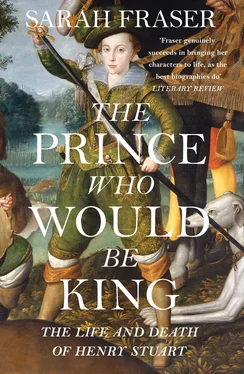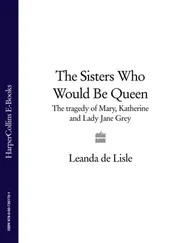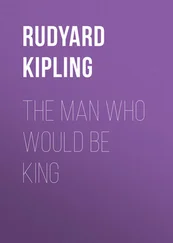Sarah Fraser - The Prince Who Would Be King - The Life and Death of Henry Stuart
Здесь есть возможность читать онлайн «Sarah Fraser - The Prince Who Would Be King - The Life and Death of Henry Stuart» — ознакомительный отрывок электронной книги совершенно бесплатно, а после прочтения отрывка купить полную версию. В некоторых случаях можно слушать аудио, скачать через торрент в формате fb2 и присутствует краткое содержание. Жанр: unrecognised, на английском языке. Описание произведения, (предисловие) а так же отзывы посетителей доступны на портале библиотеки ЛибКат.
- Название:The Prince Who Would Be King: The Life and Death of Henry Stuart
- Автор:
- Жанр:
- Год:неизвестен
- ISBN:нет данных
- Рейтинг книги:3 / 5. Голосов: 1
-
Избранное:Добавить в избранное
- Отзывы:
-
Ваша оценка:
- 60
- 1
- 2
- 3
- 4
- 5
The Prince Who Would Be King: The Life and Death of Henry Stuart: краткое содержание, описание и аннотация
Предлагаем к чтению аннотацию, описание, краткое содержание или предисловие (зависит от того, что написал сам автор книги «The Prince Who Would Be King: The Life and Death of Henry Stuart»). Если вы не нашли необходимую информацию о книге — напишите в комментариях, мы постараемся отыскать её.
NOW THE SUBJECT OF BBC2 DOCUMENTARY The Best King We Never Had
The Prince Who Would Be King: The Life and Death of Henry Stuart — читать онлайн ознакомительный отрывок
Ниже представлен текст книги, разбитый по страницам. Система сохранения места последней прочитанной страницы, позволяет с удобством читать онлайн бесплатно книгу «The Prince Who Would Be King: The Life and Death of Henry Stuart», без необходимости каждый раз заново искать на чём Вы остановились. Поставьте закладку, и сможете в любой момент перейти на страницу, на которой закончили чтение.
Интервал:
Закладка:
Once inside the castle, Anne entered the royal palace, took possession of her lodgings, just below the Prince’s Tower, and announced she would not be leaving without her son. Horrified at the turn of events, members of the Scottish Privy Council raced to Stirling to convene in the castle, resolve the crisis, and work out how to shift her.
On 10 May, a letter from Montrose, Lord Chancellor of Scotland, interrupted the king’s delirious progress south. ‘Her Majesty’s present estate and condition I refer to the bearer’s report,’ he started. Pregnant and implacable as she was, Montrose said if they could just get ‘Her Grace out of Scotland’ it might defuse ‘all fear of hazard, and danger of inconvenience’.
Back at Stirling, waiting guidance from the king, the privy councillors handled the possible ‘inconvenience’ of a kidnapping and ‘revolt’ as best they could. Lord Fyvie was given the unenviable task of persuading Anne to depart for England. Lord President of the Court of Session, Fyvie was the highest placed civil judge in Scotland. He was also a Catholic sympathiser, guardian of Prince Charles, and served Anne as baillie and justiciary of the regality of Dunfermline, one of Anne’s possessions. Tall, with a fine figure, slim eagle nose and sensitive countenance, if anyone could expect a good reception from the queen, surely it was Fyvie.
He dragged his feet as he walked across the inner courtyard and entered the queen’s presence chamber. As soon as he opened his mouth on the subject, Anne was seized by a fury fit and started to ‘beat at her belly’ in distress.
Fyvie, aghast to ‘be with her Majesty … at the very worst’, saw her fall. Bleeding ‘from the womb’, the queen’s ladies crowded round and led her away. The brain has no sense of time. Perhaps it was a kind of aftershock, dropping her back into the horror of nine years ago, giving birth to Henry here, only to lose him.
‘At such a time’, in the history of the fledgling Britain, ‘such an accident, to such a person, what could he [Fyvie] do or say?’ the Scottish council asked James. Fyvie quaked in his boots. What if she died? Someone would have to be held to account. The councillors now changed tack, going all out to appease Anne, allowing Henry free movement through the castle to visit his mother.
The atmosphere thickened with hostility. ‘Her Majesty’s passions could’ only be ‘moderated or mitigated … by seconding, following and obeying all her directions’, though of course these were ‘subject and depended wholly upon your sacred Majesty’s answers and resolutions as oracles’, they told the king. The councillors requested urgent, clear and credible orders.
Anne’s fury had erupted, Demeter-like in its scorching power. She now showed every possible manifestation of her scorn, of being denied motherhood and the guardianship of her children for almost a decade. Her passion emptied her out, and stunned all around. She miscarried the baby, a boy.
‘Physic and medicine require greater place with her Majesty at present’, than lectures on realpolitik, Fyvie carefully advised his king. The queen’s demeanour spoke much louder than any words. For days she lay motionless and silent. She could so easily haemorrhage or contract a puerperal infection, and that would be that. John Spottiswoode, her almoner, rode south to tell the king to prepare for the worst. Prince Henry, meanwhile, feared he was about to lose his mother, having just lost both father figures. The king sent Mar, of all people, home to deal with the crisis.
Eventually the queen began to recover. The castle hummed with ‘controversy and a jar anent this question of the Prince’s delivery’ once again, as it had following Henry’s birth. There ‘rests greater hatred and malice’ than ever between the Mars and the queen’s party. The risk is, the Lord Chancellor told James, that ‘if it be not prevented’ it will ‘make a greater stir in this country’. In England, so far, all the talk had been of peace and happiness, of the chance to ‘begin a new world’, said the Earl of Montrose.
But at home, Stirling had become a microcosm of all the dangers James had tried to shield Henry from – and a potential trigger point for revolution. On the eve of the union of the thrones, with the king out of the way, the queen’s faction might try to kidnap Henry, crown him and declare an independent Scotland, with the Danish Queen of Scots acting as regent.
James could not comfortably make his formal entry into London with a consort so angry and estranged it nearly killed her, and lost him his children. Half the appeal of the Stuarts was a promise of stability and continuity, taking the country away from succession battles and the threat of civil war from rival claimants. Prince Henry was vital to that promise. Two other children lived, but the boy, Charles, was a weedy child.
Anne stood firm, however. ‘The Queen’s Majesty is not minded to depart unless the prince go with her, and will no ways rest content that the Earl of Mar should accompany her,’ Montrose told the king, suggesting James relieve Mar of his duty. James appealed to his wife: ‘God is my witness that I ever preferred you to all my bairns, much more than to any subject’, including Mar. Then he spoiled it by lecturing her not to open her ears to every ‘flattering sycophant’, and ended by praising Mar as ‘an honest and wise servant for his true and faithful service to me’. He wanted Anne’s trust, but seemed to have lost it.
The queen must join him immediately and thank ‘God for the peaceful possession … of England, which, next to God, might be ascribed to the Earl of Mar’, he commanded. Someone should have advised the king to omit the last phrase. Anne responded that ‘she would rather never see England than to be in any sort beholden to him [Mar] for the same’. She was staying put, in the same country as her children, and would deny Mar access to her.
After years of politicking, Anne had the upper hand, and played it, using Henry to provoke the first crisis of the new dynasty.
English ministers looked on in dismay. The king bowed to the inevitable. He ordered the Scottish Privy Council to discharge the Mars, thanking them for their years of good service. ‘Our cousin, the Duke of Lennox’ is coming to sort it all out, he told them. This was Ludovic, son of the late Esmé Stuart. The queen trusted young Lennox. He was the brother of her favourite, Henrietta Stuart, Countess of Huntly.
A few days later, the Earl of Mar escorted Henry across the courtyard to the Privy Council sitting in the great hall where he gave the prince into ‘the charge of other Lords appointed to wait on him on his journey to England’. As the child approached Lennox, his mother and the lords of the council, he suddenly stopped, ran back and ‘embracing the said Earl, burst forth in tears’.
After she miscarried, Anne kept the foetus and placed it in a tiny coffin. This now travelled with the royal party on its slow progress south. The queen ‘brought with her the body of the male child of which she had been delivered in Scotland’, the French ambassador explained to King Henri IV, ‘because endeavours had been used to persuade the public that his death was only feigned’. Malicious tongues whispered that she was never pregnant – just psychotically manipulative.
James begged her to cheer up. ‘Leave off these womanly apprehensions, for I thank God I carry that love and respect unto you which by the law of God and Nature I ought to do to my wife and mother of my children … As for your dole weeds’ – the black mourning clothes she put on for her dead baby boy – ‘wearing it is utterly impertinent at this time’, he told her. He wanted to show the English that the Stuarts came in great splendour to spread peace and harmony, and preside over a new dawn for the nations of Britain. Instead, his queen flaunted what she saw as the consequences of their enmity. Anne’s gesture was as dramatic as it was self-dramatising. Miscarriages were traumatic, then as now, no matter how frequently they occurred. In a spectacle-loving age, living on the royal stage, extravagant personal gestures cohabited with the most rigid etiquette.
Читать дальшеИнтервал:
Закладка:
Похожие книги на «The Prince Who Would Be King: The Life and Death of Henry Stuart»
Представляем Вашему вниманию похожие книги на «The Prince Who Would Be King: The Life and Death of Henry Stuart» списком для выбора. Мы отобрали схожую по названию и смыслу литературу в надежде предоставить читателям больше вариантов отыскать новые, интересные, ещё непрочитанные произведения.
Обсуждение, отзывы о книге «The Prince Who Would Be King: The Life and Death of Henry Stuart» и просто собственные мнения читателей. Оставьте ваши комментарии, напишите, что Вы думаете о произведении, его смысле или главных героях. Укажите что конкретно понравилось, а что нет, и почему Вы так считаете.












